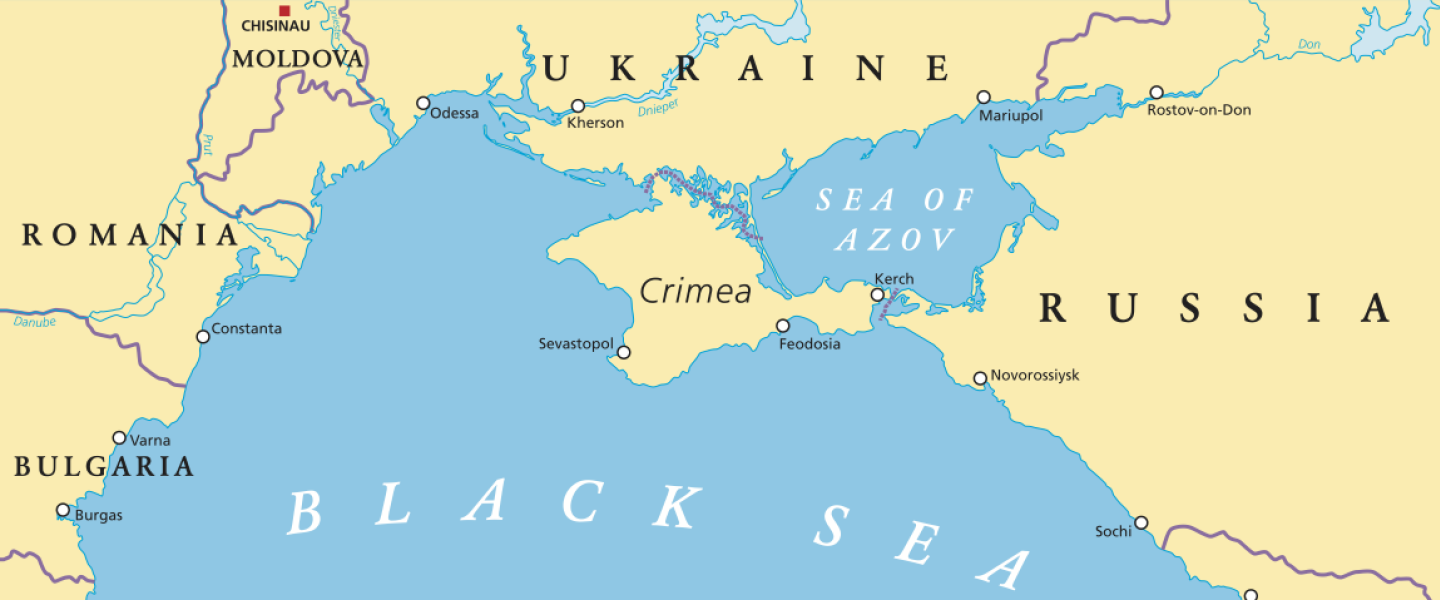As I began writing this (at 0630 GMT on 16 March), the BBC website reported that Russian forces are ‘not ready yet to launch a sea-based operation against the southern port city (of Odesa) as they haven't established troops on the ground’ there.
While this may well be the case about a ground assault on the port city – it is by no means the whole story. Odesa has not escaped assault. All the available evidence strongly suggests Russia’s naval forces have most certainly been launching attacks – on civilian shipping in and around the port.
The Russian navy has imposed a blockade on Ukraine’s coast and ports, although it is not known if this has been formally announced by the Russian government in Moscow. Blockading the coast of one’s enemy is not necessarily unlawful in wartime. But, of course, Mr Putin denies he is engaged in a war – merely a so-called special military operation. However, it looks very much like war to the thousands of seafarers of multiple nationalities trapped in Ukraine and unable to escape hostilities.
Reports suggest that there are around one hundred vessels trapped in Odesa. Ships have been sunk, civilian seafarers have been killed, and hundreds have become stranded in Odesa and other ports of southern Ukraine, trapped by the full force of the naval blockade that Russia has imposed on the region.
The ships and seafarers affected are, in most cases, neither Ukrainian nor Russian – although innocent seafarers from both countries have been badly affected by the conflict. The majority of ships are registered with states that are legally neutral in relation to this war. The German flag, for example, has been prominent in Ukrainian waters, and many other flags are present within the war zone.
The global shipping industry is profoundly international in character. Ships can be registered in almost any state. No matter where they are registered, they can be crewed by seafarers whose nationalities have little if any connection to the flag. Many merchant ships in the current war zone are crewed by mixed nationality crews – there are even ships whose crews contain a mix of Russian and Ukrainian nationals.
Attacking any civilian merchant vessels in port constitutes a war crime. Attacking those that are registered in neutral states is an aggressive act against the states of registry.
In the middle of this chaotic situation are the innocent seafarers from numerous nations whose only purpose has been to go about their lawful business. Their human rights are being abused, their lives are at serious risk, and they are unable to exercise their right to travel home and out of danger. In the last two years, having suffered the deprivation caused by the global pandemic, they are now faced with something even more serious and life-threatening.
The Organisation for Security and Cooperation in Europe is sending a team into the conflict zone to investigate war crimes and breaches of human rights law. The International Criminal Court has also opened an investigation.
Right now, Human Rights at Sea have team members on the ground investigating the impact that this war is having on seafarers and providing much needed assistance. As we learn more in the days to come, we will post reports and updates online and make our findings available to the widest possible readership. We cannot allow human rights atrocities to be ignored.
We urgently need your help to continue investigating, reporting, and providing critical assistance to vulnerable seafarers where it is needed most. While other organisations have left, we are still here defending the human rights of seafarers.
Please donate today by CLICKING HERE
By Professor Steven Haines, University of Greenwich
Honorary Trustee and Academic Advisor
Contact: If you have any questions, please write to us at enquiries@humanrightsatsea.org
About Sharing. We welcome the use and dissemination of our work with proper accreditation. Please ensure that our Terms of Use are conformed with at all times.
